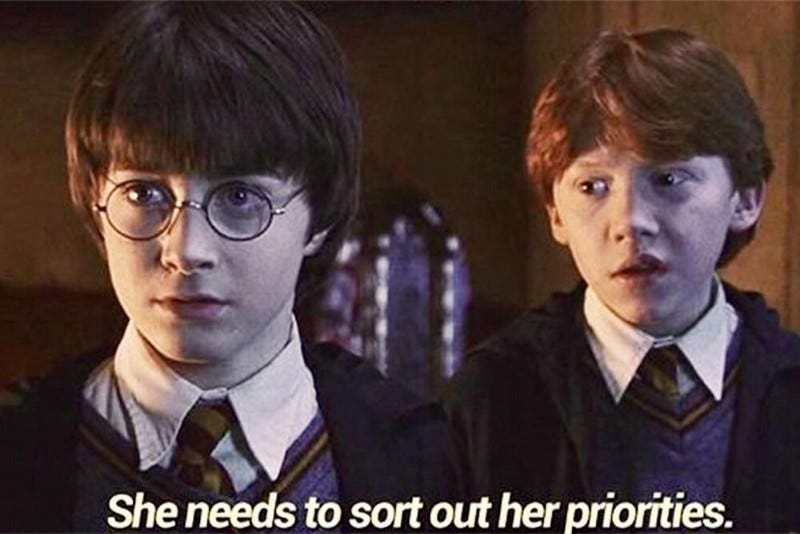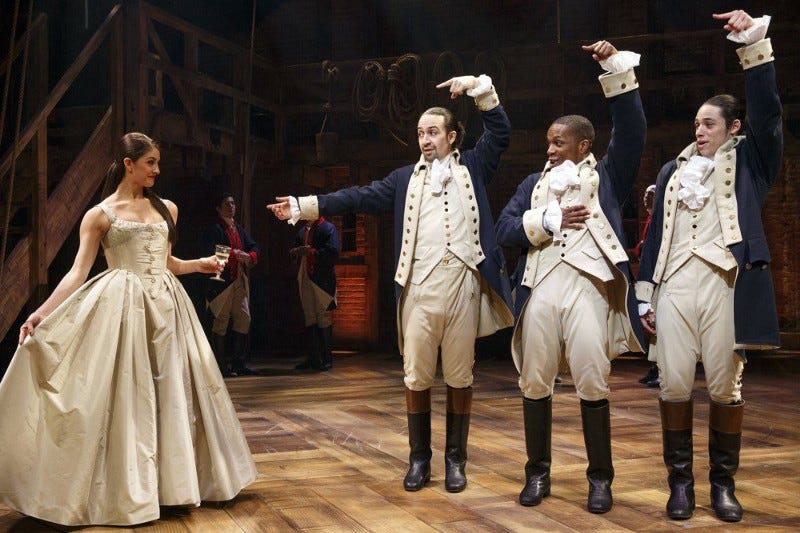It’s not what you do. It’s what you do first
You wake up. You need to walk the dog. And it’s your partners birthday — you don’t have a gift. What do you do? It would be easy to think…
You wake up. You need to walk the dog. And it’s your partners birthday — you don’t have a gift. What do you do? It would be easy to think of this as a decision — A or B. But maybe you can do both?
The question is, which do you do first?
Probably you make something for your partner. Or maybe they are the relaxed sort and the dog will go bananas if you don’t walk her. The main thing is, it’s not either/or. You can make the present and walk the dog. But one has to come first. And you only have a limited amount of time. Either until your partner wakes up or until the dog goes bananas.
This is true in general. All problems are problems of what to do first. Do you go to university or get a job? Do you make dinner or help the kids with their homework? Do you implement a lockdown or start testing and tracing. Generally the answer is, we should do both, but this one first. Or do neither
Even unavoidable decisions like elections make sense in this frame. If you had to rank Biden and Trump, who would you rank first? And do you end up choosing one, but trying to mitigate the damage in some way. (Currently, I’d vote Biden and donate to the Center for Election Science . The real problem is the system which gave me such a bad choice)
But maybe you have a choice between two parties. You can’t go to both. If it’s a hard choice it suggest the parties are… about equal priority. And that’s fine.
It works for life planning, too. What are your goals? Can you put them in order? How are you working towards each. You don’t have to choose one, but you need to know which you drop when push comes to shove. Do you choose your job or your family? You probably know the answer. It might look something like this:
Relationship
Having enough money to live on
Having a career which makes the world better
Friendships
Politics
When I was a Christian, it was clear that God came first. Nowadays I care more about the wellbeing of people and animals. Though if I had a significant other, their welfare would be up there too. I guess instinctively you know what your top concerns are. And it doesn’t have to be perfect — your friends and your dog might be about the same.
I’m not here to write your ordering. That’s for you. But note that you can be surprised by what you come up with. One thing might be so important that it eclipses almost everything else. It is okay to spend so much time on the first three that you never reach rest of your list . If that matches your beliefs then, for yourself, you are prioritising well.
I guess the major criticism is that not everything is exchangeable. Some say you can’t write a single list. That things not everything is comparable. I struggle to find an example. “But could you choose between your children?” Yes. I value them the same. (My children are unimaginable valuable, and also imaginary). Prioritising things isn’t about always know which thing is better. It’s about know what kinds of things are in general worth more than other kinds. Do you prefer first kisses or getting punched in the balls. If that’s a hard decision, well that says a lot.
Some say that it’s impossible to choose between things like justice and mercy. But look long enough and those people regularly choose one or the other. I’m not convinced there is anything which cannot be roughly compared. There are no two things which are utterly incomparable.
Finally, it works in politics. When thinking about spending we often ask “should we spend money on that?”. That’s the wrong question. The question is, “should we spend money on that first?” There is some cut off point. There is a point where we want our money more than we want to give it to the government. The question is, what are the things above that line. An example might look like this:
Universal healthcare at (60k/QUALY)
A navy of 2 aircraft carriers
20k per year for every unemployed our disabled person
— — — here is our line — — —
Universal pet healthcare
In this example, we’re willing to pay for the things above the line but not those below it. Some people argue that you shouldn’t support drug addiction no matter what the cost. But I don’t understand that argument, so if you believe it, write it in the comments. And most arguments that I don’t understand are bad.
What’s more, we should be willing to pay for all projects which on average make more money than they cost. They will definitely be above the line. A great example of this in the current climate is infrastructure projects. Bridges and railways cost a lot of money, but they are investments. At the moment things are so uncertain, that people want to pay the government to keep their money. So any investment with even an equal return is good value for money. And many infrastructure projects get much better returns than 1 for 1.
In conclusion, it’s not about individual choices, cake or fruit, pizza or stir fry. All choices are part a big list of priorities in your life. Often you can do both. Often you should do neither. And on the rare occasion where you face a really hard decision where you can only have one, feel free to flip a coin. If it’s a hard decision, it probably means the choices are about the same for you either way.
The question is rarely about what to do. It’s about what to do first.





